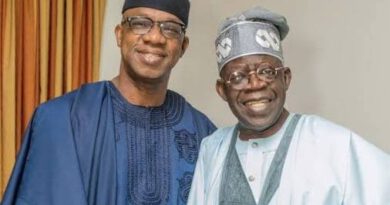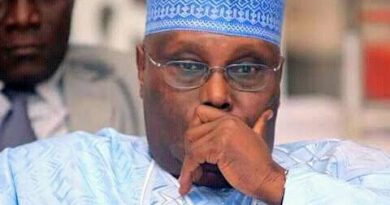National Constitutional Confab Unveils Implementation Plan, as Patriots Prepare Report, Draft Bill for Presidency, National Assembly
Conveners of the National Constitutional Summit on the Future of Nigeria have declared that the push for a new, people’s constitution has moved to the implementation phase. Following the three day confab concluded on Friday, the convening stakeholders, through the The Patriots, announced their readiness to submit a comprehensive report of the Summit resolutions to the Presidency, while a draft legislative bill shall be sent to the National Assembly.
The announcement was made during the presentation of the summit’s official communiqué on Friday, July 18, 2025 by the head of the Summit Joint Secretariat, Olawale Okunniyi, who confirmed that the primary request of the Conveners will be for the President to introduce an Executive Bill to organize elections for a national Constituent Assembly. This assembly is envisioned to comprise delegates elected on a non-partisan basis, alongside representatives from special interest groups.
The summit, convened by The Patriots under the leadership of former Commonwealth Secretary-General, Chief Emeka Anyaoku, framed its resolutions as a direct response to a failing system. The official communiqué stated that the summit was “confronted with the present systemic structural and governance failures and dysfunction under the current 1999 Constitution.” It asserted that because the 1999 Constitution “did not derive its legitimacy from popular participation and approbation of the Nigerian people,” it has led to a “decline into unitary system (rather than fostering genuine federalism),” “widespread fear, anxiety, insecurity and an increasing feeling of hopelessness,” and “sectional, ethnic, and religious conflicts.”
To reverse this course, the delegates resolved that the nation is in “urgent need of a new democratic Constitutional order.”
The communiqué argues that a new framework is essential, as “the 1999 Constitution (as amended) is deeply flawed and unrepresentative as it was not made by the people and is inadequate for addressing the country’s pluralism and the various challenges confronting Nigeria.”
The central mechanism proposed to achieve this is the constitution of a representative constituent assembly.
This body, the document clarifies, “shall be responsible for actualizing a peoples democratic Constitution that will be subjected to a referendum of the Nigerian people before it is assented to by the President.”
A core theme of the resolutions was the profound restructuring of the Nigerian state. The summit “calls for an immediate constitutional framework that will return Nigeria to a truly federal system of government where the federating units will enjoy their autonomy as obtained in the First Republic.” This includes granting federating units the power to have their own individual constitutions. This restructuring extends to the nature of government itself, with the summit concluding that “the current presidential system of government is too expensive, prone to abuse; constitutes a hindrance to peoples welfare and a major threat to the future of democracy in Nigeria.”
Likewise, it was agreed that a “two-chamber federal legislature is unsustainably expensive for Nigeria to maintain.”The communiqué also affirmed that the nation’s severe security crisis needs to be addressed with urgency, noting the “virtual collapse of security infrastructure” has led to the death and displacement of millions of Nigerians.
Citing alarming data, the document states, “from May 2023 to April 2024 alone, 614,937 Nigerians were killed,” while the country has become “the biggest trans-border market for illicit arms in Africa.” In response, the summit recommended the “urgency of a legislative framework that would enable the creation of state police to tackle the pervasive internal security issues” and the establishment of “border/coastal security guards to support the conventional security forces.”
On the administration of justice and accountability, the summit declared, “Justice delayed is justice denied.” It recommended a decentralized judiciary where “each federating unit to have its court hierarchy up to the Court of Appeal,” and the creation of special courts for corruption and terrorism. To ensure impartiality, delegates recommended that the “office of the Attorney-General of the Federation and that of the Minister of Justice as well as the office of Attorney-General and Commissioner for Justice at the state level should be separated.”
The rights and welfare of citizens were a paramount concern. The summit lamented that “over 130 million Nigerians wallow in multidimensional poverty” while “over 20 million Nigerian children out of school.” To address this, it recommended that the new Constitution “should entrench robust provisions for the protection of the peoples socio-economic and political rights such as education, security and employment.”
Furthermore, the Summit called for a new constitution that would “ensure gender equity” and a legal framework to guarantee the voting rights of the over 15 million Nigerians in the Diaspora.
In his concluding presentation on behalf of the conveners, Chief Emeka Anyaoku expressed a hopeful vision for the country. “The current gush of enthusiasm and commitment from Nigerians of all classes across the globe is a further demonstration of the urgent need for a new Nigeria governed by a new democratic and inclusive constitution,” he stated. “Together, we shall live to see that new, prosperous Nigeria where no child is left behind and where no man and woman is oppressed.”
Signed
James Ezema
Media Manager,
National Constitutional Summit
*2348035823617



